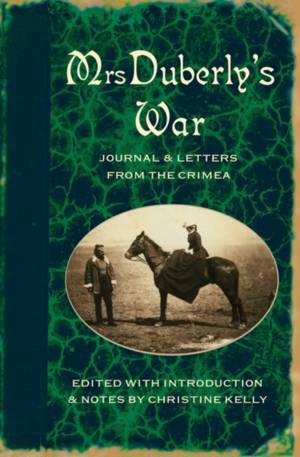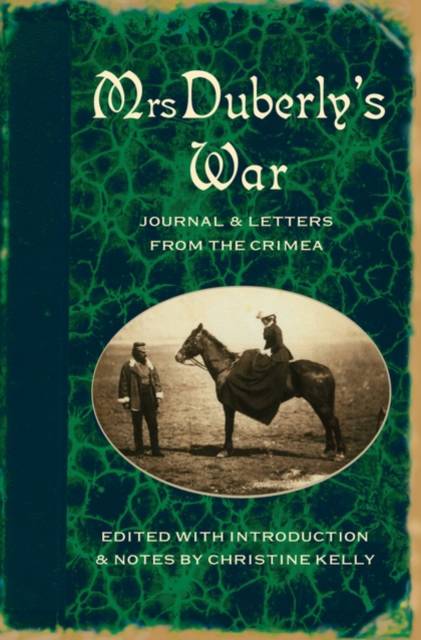
- Retrait gratuit dans votre magasin Club
- 7.000.000 titres dans notre catalogue
- Payer en toute sécurité
- Toujours un magasin près de chez vous
- Retrait gratuit dans votre magasin Club
- 7.000.0000 titres dans notre catalogue
- Payer en toute sécurité
- Toujours un magasin près de chez vous
43,45 €
+ 86 points
Description
Mrs Duberly's journal is one of the most vivid eye-witness accounts we have of the Crimean War. Fanny Duberly, then aged 25, accompanied her husband to the Crimea in 1854, and remained there until the end of the fighting, the only officer's wife to remain throughout the entire campaign. She survived the severe winter of 1854-55, witnessed the battle of Balaklava and the charge of the Light Brigade, and rode through the ruins of Sebastopol.
Spirited and courageous, she was known by sight to British and French soldiers across the battlefields, regarded often with enthusiasm and sometimes with disapproval. Witty and beautiful, she enjoyed flirtatious friendships with many of the most important men of the campaign. Her Journal Kept During the Russian War was published in 1855 and caused a sensation. Although widely praised as the "new heroine for the Crimea," Fanny was also censured, ridiculed, and even parodied in Punch. She had stepped into a man's world, and written about it in a way that seemed to some at the front an invasion of privacy and to others at home an abandonment of gentility. A best-seller at the time, the Journal was not reprinted after its second edition of 1856, and this is the first edition since that time.
Christine Kelly provides an introduction, biographical and explanatory notes, and an index. She makes revealing use of Fanny's original, previously unpublished, letters to her sister Selina, which often show a reckless, immediate response to events and people where the journal is more circumspect. The edition includes photographs, maps, and some of Fanny's own sketches.
Spirited and courageous, she was known by sight to British and French soldiers across the battlefields, regarded often with enthusiasm and sometimes with disapproval. Witty and beautiful, she enjoyed flirtatious friendships with many of the most important men of the campaign. Her Journal Kept During the Russian War was published in 1855 and caused a sensation. Although widely praised as the "new heroine for the Crimea," Fanny was also censured, ridiculed, and even parodied in Punch. She had stepped into a man's world, and written about it in a way that seemed to some at the front an invasion of privacy and to others at home an abandonment of gentility. A best-seller at the time, the Journal was not reprinted after its second edition of 1856, and this is the first edition since that time.
Christine Kelly provides an introduction, biographical and explanatory notes, and an index. She makes revealing use of Fanny's original, previously unpublished, letters to her sister Selina, which often show a reckless, immediate response to events and people where the journal is more circumspect. The edition includes photographs, maps, and some of Fanny's own sketches.
Spécifications
Parties prenantes
- Auteur(s) :
- Editeur:
Contenu
- Nombre de pages :
- 418
- Langue:
- Anglais
Caractéristiques
- EAN:
- 9780199532063
- Date de parution :
- 30-07-08
- Format:
- Livre broché
- Format numérique:
- Trade paperback (VS)
- Dimensions :
- 132 mm x 196 mm
- Poids :
- 444 g

Les avis
Nous publions uniquement les avis qui respectent les conditions requises. Consultez nos conditions pour les avis.






